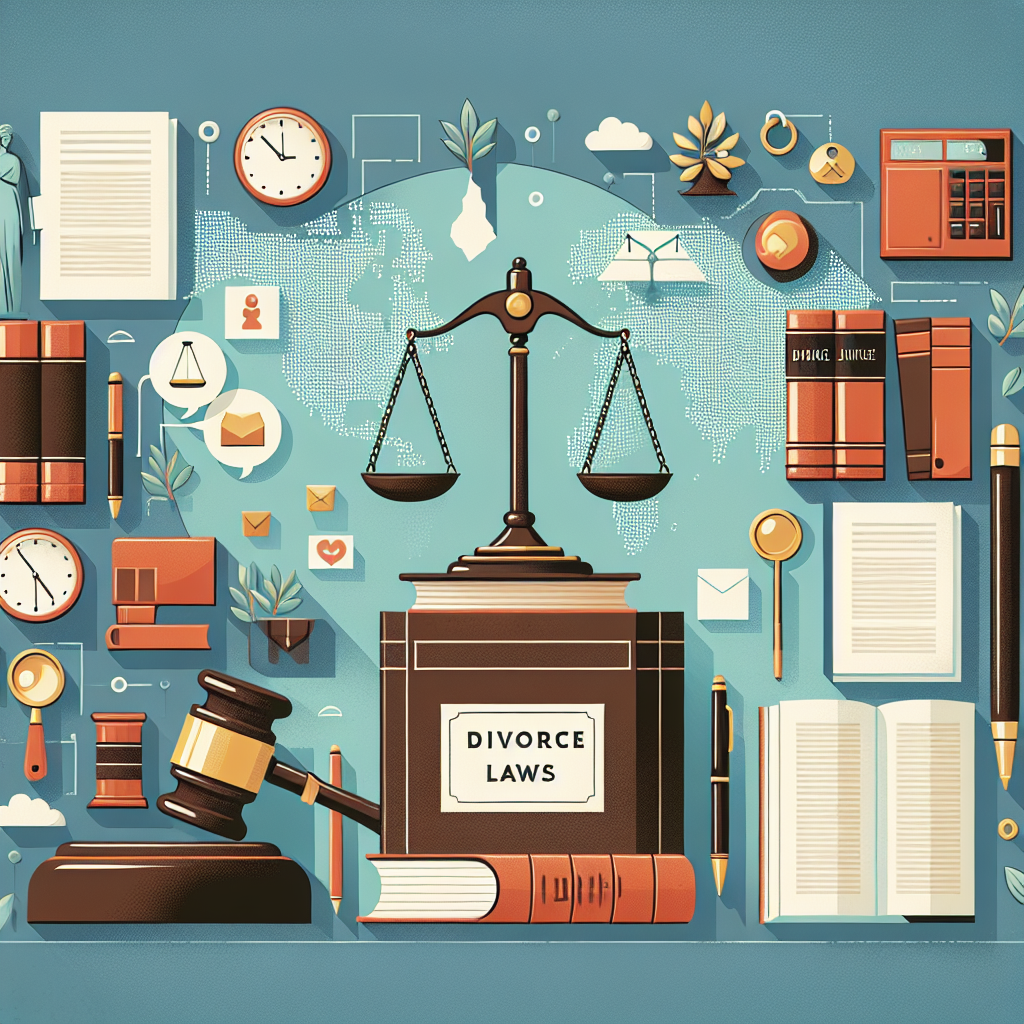Understanding Different Divorce Laws

Decoding Divorce Law Regulations: Expert Insights
Overview of Divorce Law Regulations
Divorce is a legal process that dissolves a marriage and divides the assets and debts of the couple. The laws and regulations surrounding divorce vary from state to state, so it is important to understand the specific laws in your jurisdiction. In general, divorce laws aim to provide a fair and equitable resolution for both parties involved.
Understanding the Legal Grounds for Divorce
Every state has different legal grounds for divorce, which are the reasons for which a couple can legally end their marriage. Some common grounds for divorce include irreconcilable differences, incompatibility, adultery, abandonment, and cruelty. It is important to note that some states require a separation period before a divorce can be granted, while others do not. Understanding the legal grounds for divorce in your state is crucial in determining the appropriate course of action for your case.
The Process of Filing for Divorce
In order to file for divorce, one spouse must initiate the legal proceedings by filing a petition with the court. This document outlines the reasons for the divorce and any requests for child custody, support, and division of assets. The other spouse must then be served with the petition and has the opportunity to respond. If both parties agree to the terms of the divorce, it can be uncontested and resolved through a settlement agreement. If there are disputes, the case may go to trial where a judge will make decisions on contested issues.
Division of Marital Assets and Debts
When a couple gets divorced, their assets and debts must be divided in a fair and equitable manner. This can include real estate, bank accounts, retirement accounts, investments, and any other jointly-held assets. In some states, assets acquired during the marriage are considered marital property and are subject to division, while others follow community property laws where all assets and debts are split evenly. It is important to work with an attorney to ensure that all assets and debts are properly identified and divided according to the laws in your state.
Child Custody and Support
When there are children involved in a divorce, the court must make decisions regarding custody and support. Custody can be either physical, where the child primarily resides with one parent, or legal, where both parents have a say in major decisions regarding the child’s upbringing. In most cases, it is in the best interest of the child to have both parents involved in their life, so joint custody is often awarded. Child support is also determined based on factors such as the income of both parents and the needs of the child. It is important to work with an attorney to ensure that the best interests of the child are taken into consideration during these decisions.
Spousal Support and Alimony
Spousal support, also known as alimony, is a payment made by one spouse to the other after a divorce. This is usually done to ensure that the lower-earning spouse can maintain the same standard of living they had during the marriage. The amount and duration of spousal support varies depending on the state and the circumstances of the case. Factors such as the length of the marriage, each spouse’s income and earning potential, and the standard of living during the marriage are taken into consideration. It is important to consult with an attorney to understand the laws and guidelines for spousal support in your state.
Post-Divorce Modifications and Enforcement
After a divorce is finalized, circumstances may change that require modifications to the divorce decree. These changes can include a significant change in income, relocation, or a change in the needs of the child. In order to modify the divorce decree, a request must be made to the court and a judge will make a decision based on the current circumstances. In cases where one party fails to comply with the terms of the divorce decree, enforcement actions may be taken to ensure compliance. It is important to work with an attorney to navigate these post-divorce issues.
Alternative Dispute Resolution Options
In some cases, couples may choose to pursue alternative dispute resolution (ADR) instead of going to court. These methods include mediation, collaborative divorce, and arbitration. Mediation involves a neutral third party helping the couple reach a mutual agreement on issues such as custody and division of assets. Collaborative divorce involves both parties and their attorneys working together to reach a settlement agreement without going to court. Arbitration is a more structured process where a neutral third party acts as a judge and makes decisions on contested issues. ADR can be a less costly and less time-consuming option for resolving divorce issues.
Collaborative Divorce vs. Traditional Divorce
Collaborative divorce, also known as no-court divorce, is a process where both parties work together to resolve issues without going to court. This method allows for more control and flexibility in the decision-making process as opposed to leaving decisions solely in the hands of a judge. It can also be less costly and less adversarial compared to a traditional divorce. However, it may not be appropriate for all cases, such as those involving domestic violence or high-conflict situations. It is important to consult with an attorney to determine if a collaborative divorce is the best option for your case.
Tips for Hiring a Divorce Attorney
When going through a divorce, it is important to have a knowledgeable and experienced attorney on your side to ensure that your rights are protected and that a fair resolution is reached. When choosing an attorney, it is important to research their experience and track record, as well as their reputation and communication style. It is also important to have a clear understanding of their fees and how they will handle your case. Meeting with multiple attorneys and asking for referrals can help you make an informed decision and find the best representation for your case.



